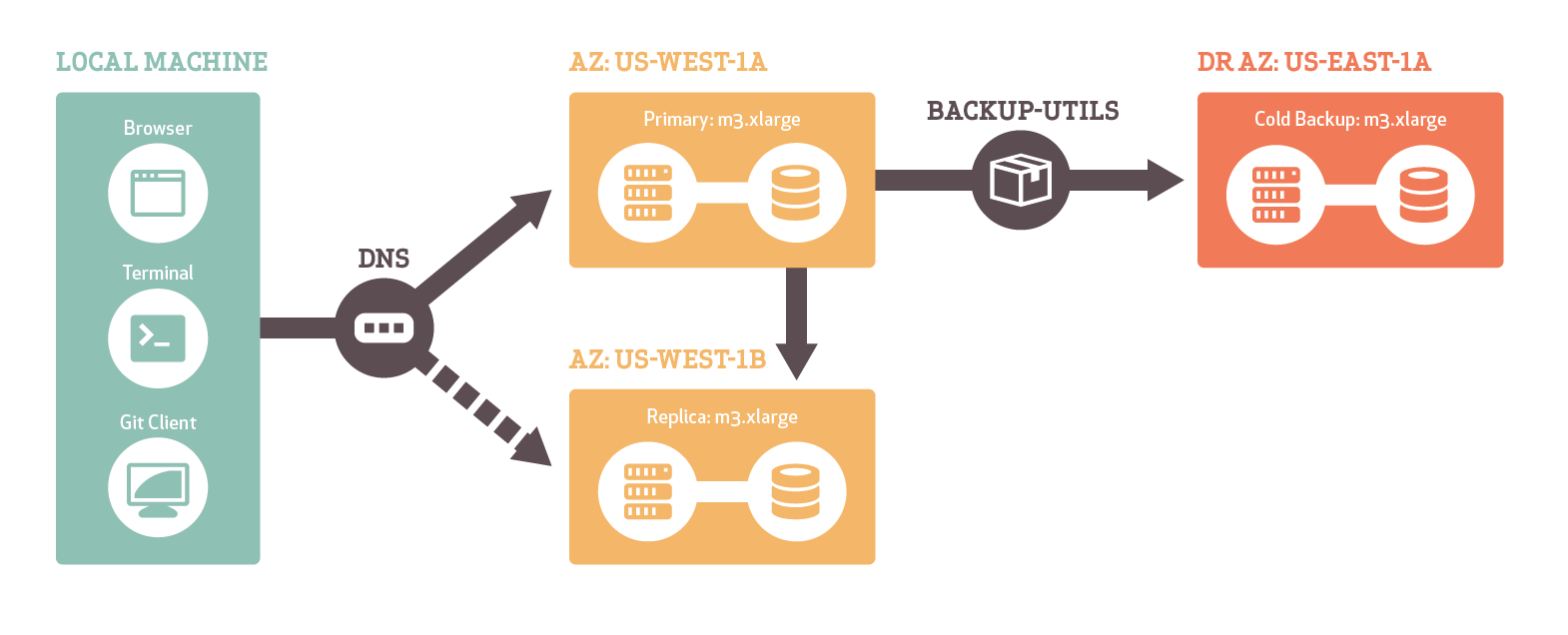With the latest version of GitHub Enterprise, large organizations can now take the service’s virtual machines and stand up a highly scalable version of GitHub‘s services on Amazon’s cloud computing platform.
Since its launch seven years ago, GitHub has become the de facto standard for many developers who want to host and manage their source code in the cloud. Enterprises, however, are often uncomfortable with the idea of having their code live outside of their corporate firewalls, so a few years ago, GitHub launched an on-premise version of its service for large businesses.
Today, about 100,000 engineers use these GitHub Enterprise installs every day. But as companies have gotten more comfortable with the cloud, there has also been a stronger demand for a version of the service that companies could deploy and manage on public clouds like AWS.

As GitHub’s VP of Strategy Brian Doll told me last week, Amazon’s compliance with standards from HIPAA for healthcare services and the government’s FEDRAMP has made them feel significantly more comfortable with moving their code to the cloud, too. It took quite a bit of engineering work to make GitHub on AWS a reality, he told me, but the result is that businesses will be able to scale their installs easier and ensure high availability for their developers.
“We always say that every company is becoming a software company,” Doll told me. While you’d think that enterprise IT is pretty conservative, that doesn’t seem to hold true for those looking to use GitHub Enterprise. “Most surprisingly it’s the largest companies that are looking to adopt the cloud pretty full scale,” Doll said.
Today’s update, which is essentially the launch of GitHub Enterprise 2.0, also includes a number of other features, no matter whether it’s hosted on AWS or not. Companies want to be able to use their existing single sign-on solution with GitHub, for example, and they can now use and LDAP or SAML compatible solution to do so. Also new are security audit logs, so admins can keep a better tab on users and allow them to audit account, team and repository access over time.
